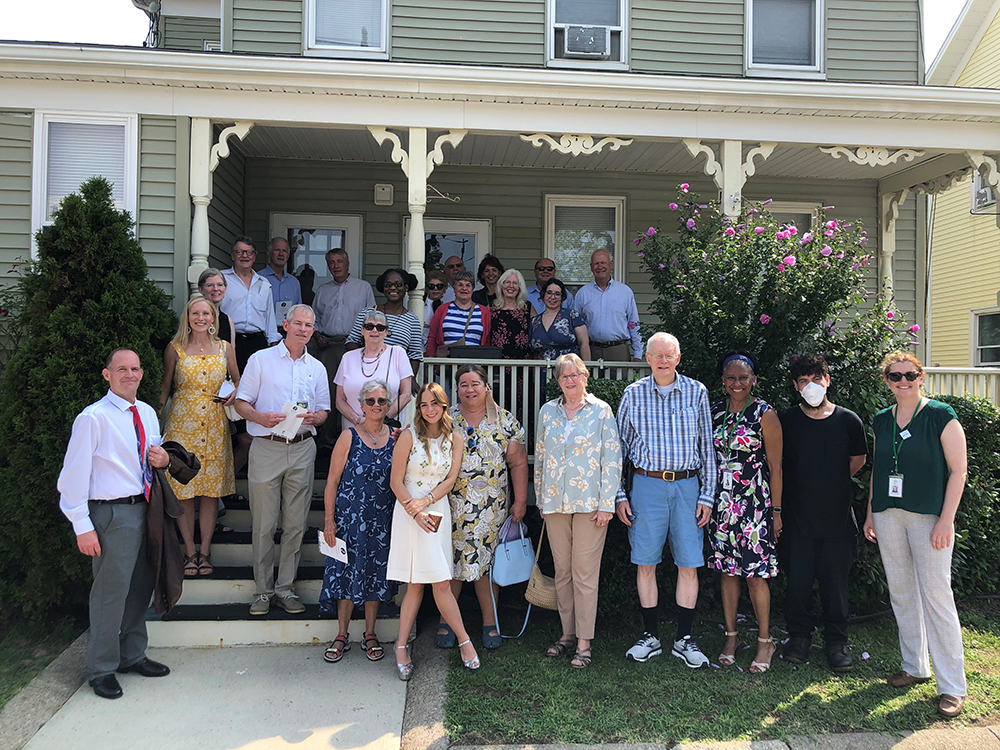Caritas Communities has created its first endowed fund

Braintree, MA Caritas Communities has created its first endowed fund named after a Caritas incorporator, Paul McGrath, who passed away in August of 2020. The fund will support rental assistance to residents facing a temporary financial setback due to loss of income or unexpected expenses. Awards average between $700 - $800 and 90% of recipients successfully resume paying rent and retain their housing.
While an employee of the real estate firm John M. Corcoran & Co, McGrath worked closely with Caritas founder P. Leo Corcoran and was instrumental in arranging the financing for the first several Caritas properties. He served on the board of directors for more than a decade.
“Paul was known for acts of kindness and generosity to friends and strangers alike,” said Karin Cassel Mitterando, executive director. “For this reason, it is fitting that we fund homelessness prevention through rental assistance in his name: for a small amount of money, we can help a resident stabilize and retain their housing.”
“This is a perfect way to honor Paul and will benefit so many people,” said Rick High, president of John M. Corcoran & Co. “He was dedicated to housing and always helping out those in need. He would be so proud of this legacy.”
Caritas has reached 75% of its fundraising goal of $1 million. All donations are being matched 1:1 by the John and Mary Corcoran Foundation up to $500,000.
Caritas Communities prevents homelessness by providing very low-income individuals with permanent housing, support, a sense of community and expanded opportunities. For more than 36 years, Caritas has helped fill the need for safe, secure housing in Greater Boston. Caritas owns and operates 33 buildings in 17 Greater Boston communities, serving more than 1,000 individuals annually. Caritas provides on-site supportive services, emergency rental assistance, Veteran-specific housing and services, and on-site property management. Caritas enables people working for low hourly wages, Veterans experiencing post-service challenges, and low-income elderly and disabled citizens to live in a clean, safe home that they can afford. Caritas Communities is an independent, non-sectarian, non-profit housing provider.
Mount Vernon Co. acquires John Carver Inn & Spa in Plymouth, MA


Selecting the right façade installation firm - by Steven Powell

IREM President’s Message: Fostering community connections during the holiday season


.png)





.png)
